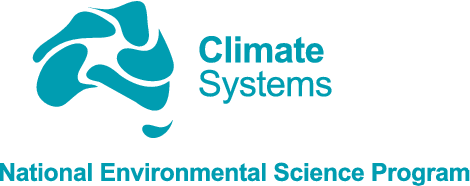November 13, 2025
As the new Regional Climate Resilience Coordinator for the Far North Queensland Regional Organisation of Councils, Maria began her journey into climate resilience the way many of us do, by typing a few words into Google. That was two years ago. These days, maybe she’d ask ChatGPT?
Fortunately for our Search Engine Optimisation efforts, Maria’s search led her to the NESP Climate Systems Hub, a resource that offered more than just the latest climate research. She was looking for climate insights that spanned her region, her state, and the nation, information that could help her guide conversations with elected leaders and decision-makers.
“When it comes to tackling climate change, whether it’s adaptation or mitigation, it’s really about not reinventing the wheel,” Maria says.
“But I wanted to make sure the information was reputable and accurate. That’s vital when I’m having conversations with people who shape policy.”
Maria found her way into the Hub’s webinars, not just as a passive viewer but as an active participant, engaging through the chat box with the Climate Systems Hub Knowledge Brokers.
“For me, the NESP Climate Systems Hub is a safe space. I knew I could get trusted information there,” she explains.
“The Knowledge Brokers reached out to ask more about what we were looking for. That kind of interaction made a big difference.”
Maria was a valued contributor into the work of the Climate Systems Hub too, participating in the workshop for Adapt Land&Sea held in Cairns in 2024. She was part of our co-design process and two-way knowledge sharing. Her insights have helped shape this project.
Her connection with the Climate Systems Hub deepened at Climate Adaptation 2023 in Adelaide and then Climate Adaptation 2025 in Perth, where she met researchers and brokers face-to-face and saw firsthand how the latest climate science could be translated into practical tools for councils.
Maria’s mission is clear: build the confidence of council officers so they can communicate climate research with impact. But she’s working within tight constraints.
“I’ve got a four-hour window every three months with these decision-makers. They don’t have time to attend all the webinars. So I try to replicate those webinars, tailored specifically for our region.”
Her vision is to create stronger connections between researchers and council officials, enabling collaborative projects that lead to real policy change.
“I want to find a way to connect the right researchers with our council teams. If we can get them working together on a project, like you do with co-design, we’ll be in a much stronger position to respond to climate risks.”
Find out more about Maria’s work at Far North Queensland Regional Organisation of Councils >
Keep up to date with the latest from the Climate Systems Hub >
